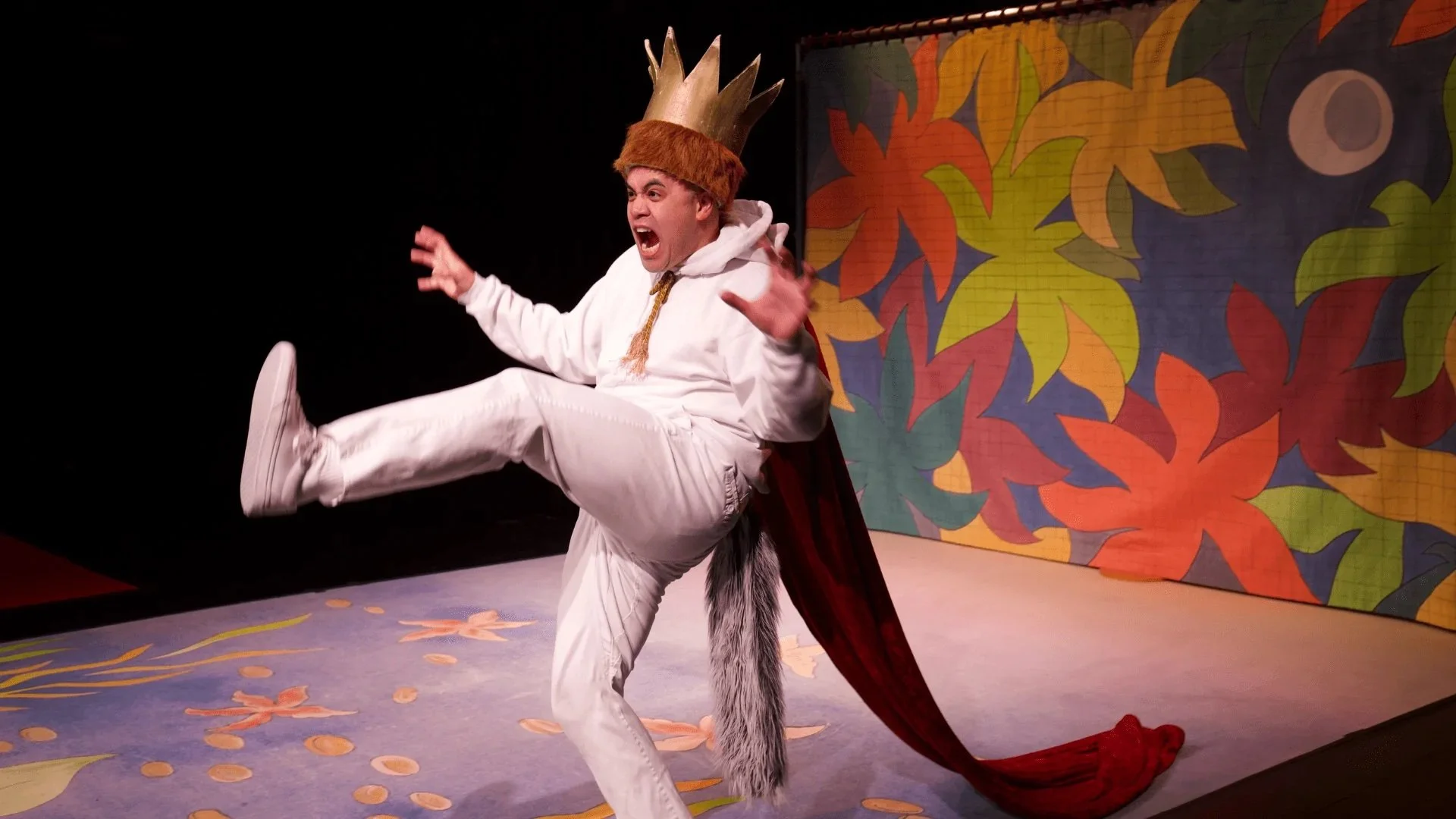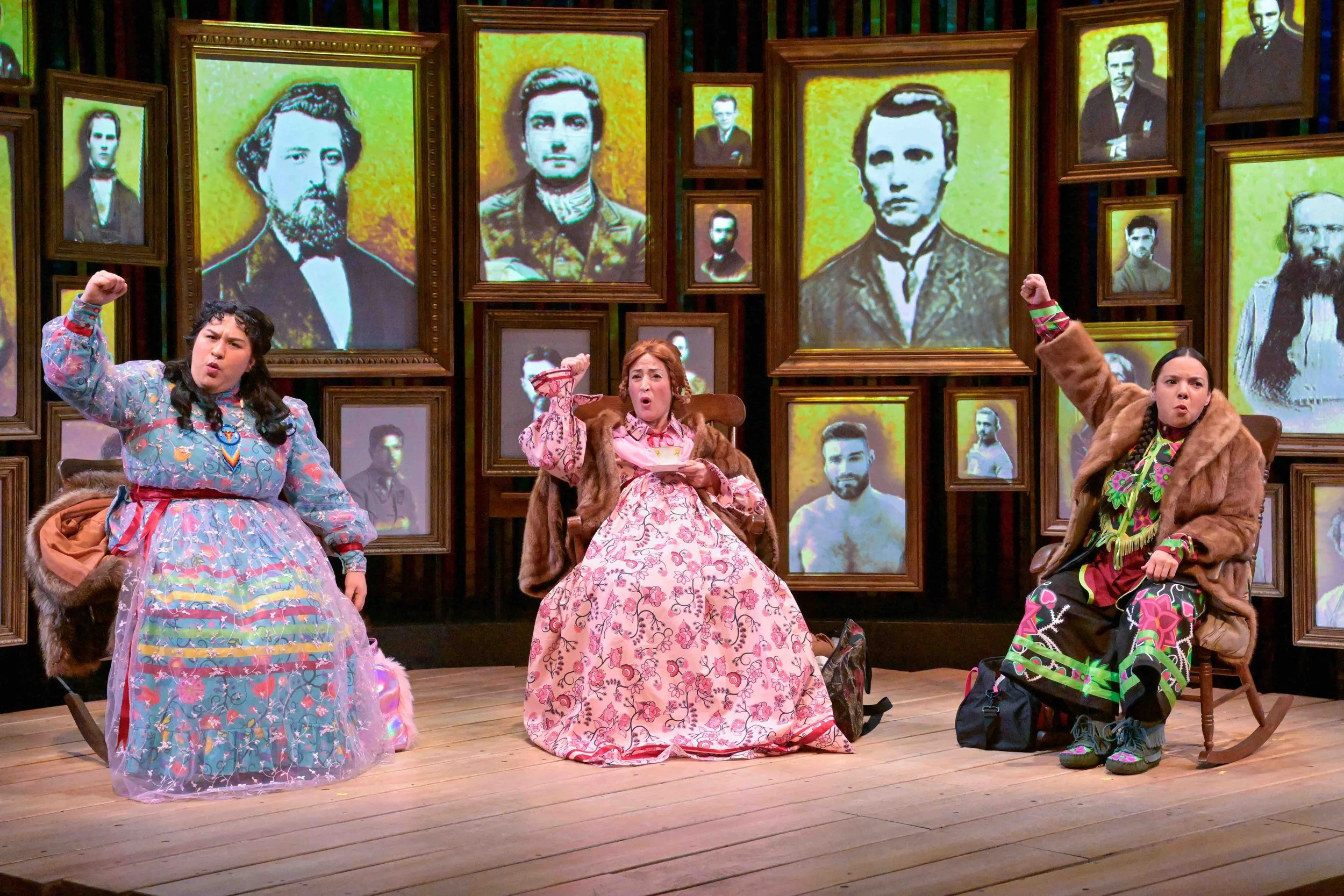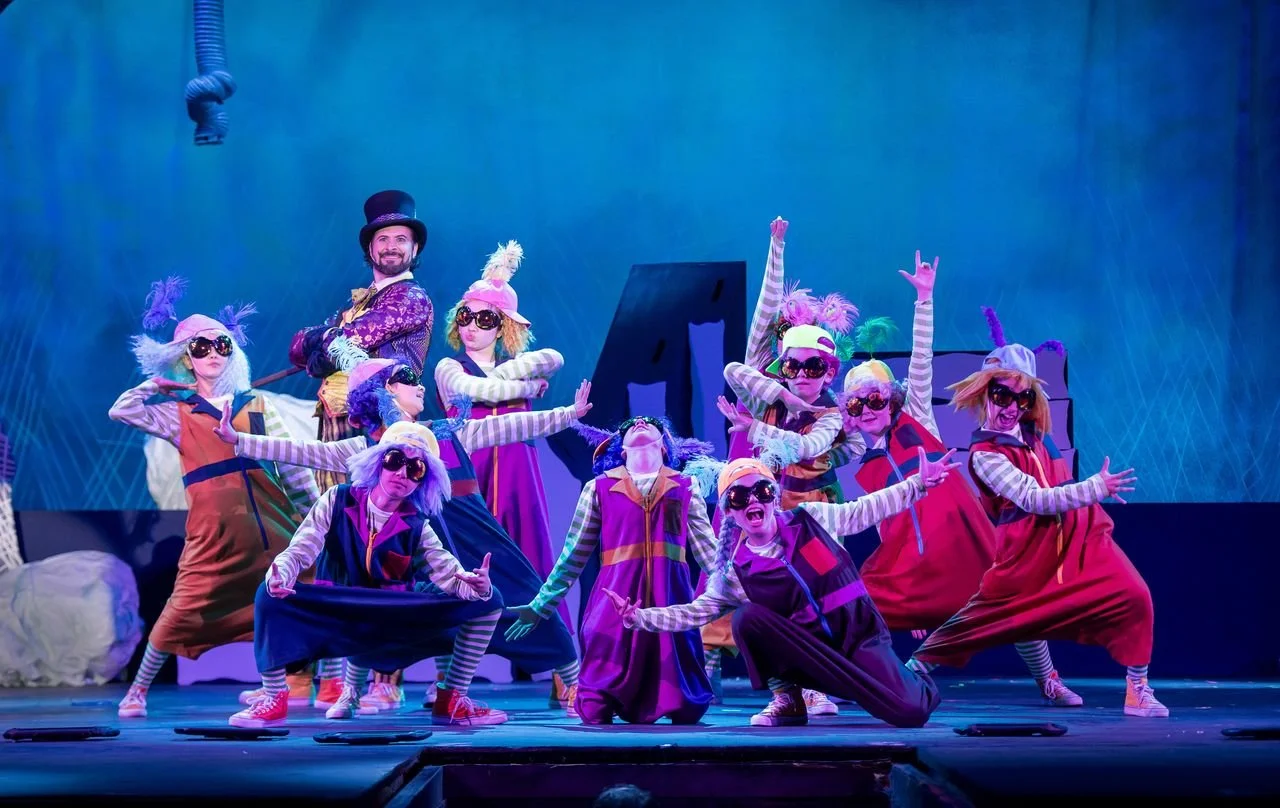Mimicry meets the classics in Charles Stuart Ross's One Man Pride and Prejudice at the Vancouver Fringe
Better known for his speed-of-light Star Wars, the master of multitasking enlisted his wife for help on this one.
The many faces of Charles Stuart Ross.
The Vancouver Fringe Festival presents One Man Pride and Prejudice at Performance Works from October 2 to 10. Read about theatre COVID protocols here
ACTOR CHARLES STUART Ross is not sold on livestream theatre.
The man beloved on the Fringe festival circuit for legendary, story-compressing solo shows like One Man Stars Wars and One Man Lord of the Rings admits he was not thrilled with his first and last virtual foray. It took place on a national online broadcast earlier this year.
“Putting it into the digital format felt a little bit sad,” says the artist from home in Victoria, speaking about his latest show, One Man Pride and Prejudice. “Because it was a digital audience you had instant messaging and digital feedback right away, and people will say things that are a little bit acerbic or complain about things that are out of your control—like the sound wasn't good. These were free, donations were voluntary, and yet the level that people were holding me to… I thought, ‘That’s crazy.’
“I longed for the stage—that connected disconnect that only live theatre has, where the audience starts to react to something and it can elicit an avalanche of continual noise,” he adds. “Something is incredibly lost with virtual, and only living, breathing people can bring it to life.”
That’s why Ross is so looking forward to his live, socially distanced performance as part of the Vancouver Fringe Festival. He’ll be bringing his latest rollicking single-handed speed-read through Jane Austen’s hundreds-of-pages classic—in this case very different subject matter for this multitasking thesp.
“I guess I’d rather have 10 people crazy enough to come out to the show” than venture online again, he asserts.
Austen’s book, and the BBC series starring Colin Firth that most inspired Ross’s latest, required a bit of special treatment. It is, after all, told from a female perspective—unlike, say, the source material for his hits One Man Batman or One Man Avengers. And so, Ross enlisted the help of his wife, artist and writer Lisa Hebden, to pen the script, and Danette Boucher to direct.
“I even had to write a forward apology at the beginning of my show to say I am a man telling a woman’s story,” he says.
His wife brought a different energy to the highlight reel of plot points that he covers in the show, Ross says. “My tendency is to make things active, and she's able to ground things, to show how love is slow burning and threatened with being snuffed out.”
Ross plays not just the snooty Fitzwilliam Darcy and the endearing Elizabeth Bennet, but the houseful of sisters and more in his whirlwind, satirical tour of the romantic opus. The dance sequences are even here. He says his talent for mimicry went to the usual work on the plummy accents and eccentric characters—not so far-fetched when you consider he has embodied everything from monsters to spaceships in past outings.
“I might be part cockatiel,” he remarks with a laugh. “I have an auditory memory. I have the ability to remember things in an auditory way and my personality seems determined to do my best to re-create it—enough so people laugh at it.
“I have a lot of shows packed into my head so there's a lot of muscle memory involved,” he adds. “This is the only thing I’m good at, it’s the only thing I do.”
Bearing that in mind, it’s striking to think how colossally Ross’s life has changed with the pandemic. Consider that he had to cancel everything from a stint at the Edinburgh Fringe to a tour of Southeast Asia when lockdown hit. “My life is completely different in that a job that I’ve done for 20 years I haven’t been able to do at all.”
That’s why Ross is so eager to appear at the Fringe in its latest mini-series, spread over the fall. The festival feels like home, and so does the Performance Works theatre where he’s taken the stage alone before.
Ross, whose taste obviously veers easily from the classic to the pop culture, remarks that the entire situation reminds him of 14th-century author Goivanni Boccaccio’s The Decameron. The book contains 100 tales told by a group of young adults sheltering in a villa, isolating themselves from the Black Death ravaging Florence.
“We kind of find ourselves in a similar sort of state of pandemic, where we’re telling stories to people,” he opines. “I feel like there's an odd similarity in this time, and I'm trying to hold to the theatrical roots that I have rather than boldly going into this digital thing.” May the force be with him.


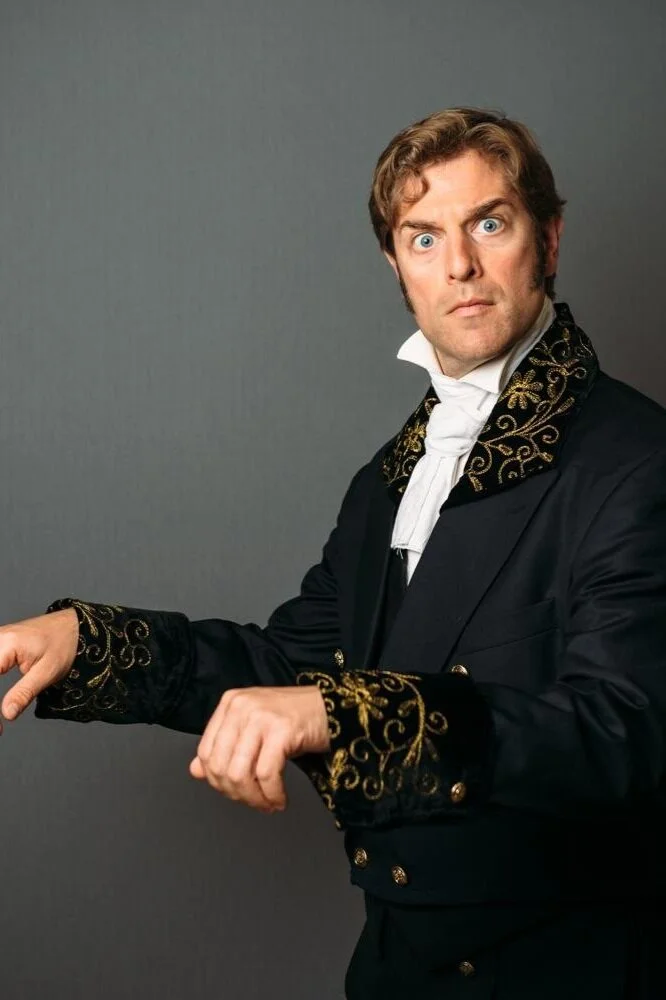
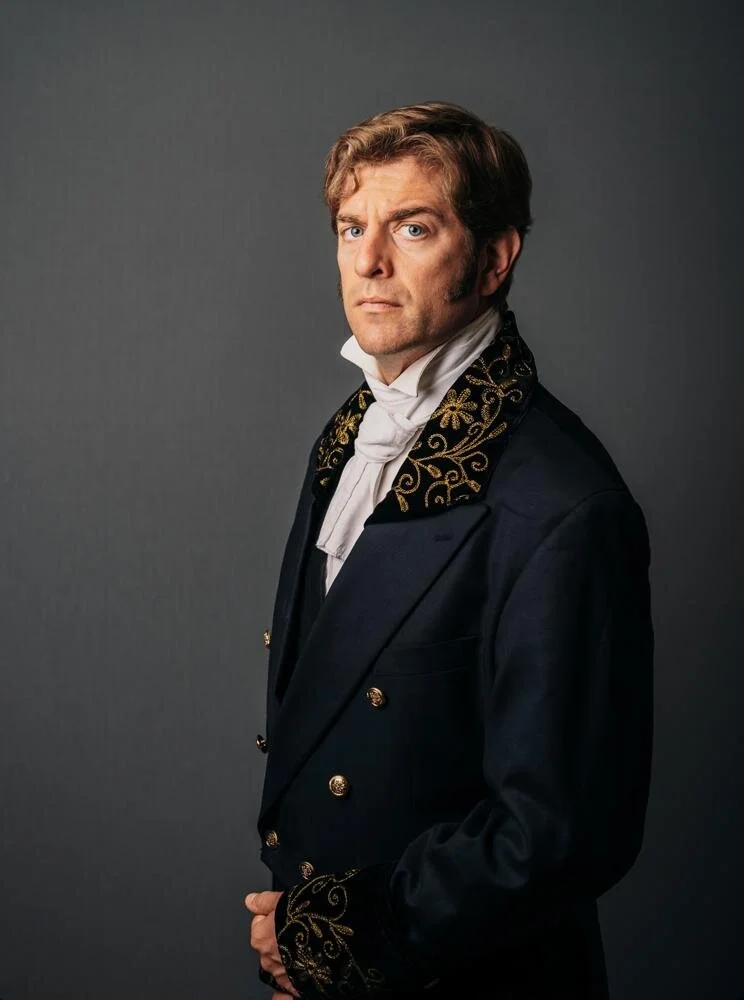


![Theatre review: Complete Works of William Shakespeare (abridged) [revised] [again] takes pleasingly panicked tour of the Bard’s canon](https://images.squarespace-cdn.com/content/v1/5f10a7f0e4041a480cbbf0be/1752776963817-BS2BYYQMLMSGU9OG3E37/Nathan-Kay-and-Craig-Erickson.-Photo-By-Tim-Matheson.jpg)
